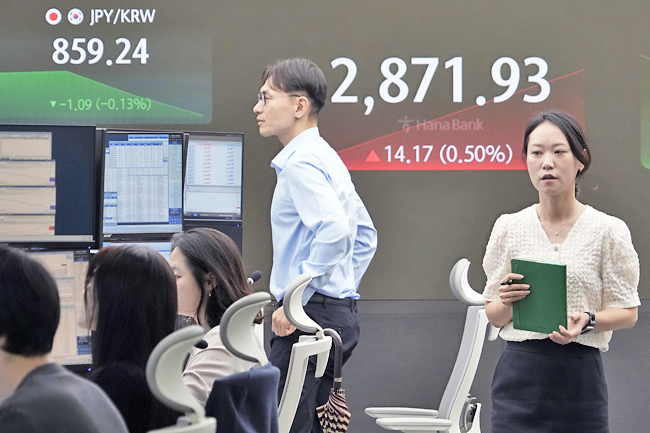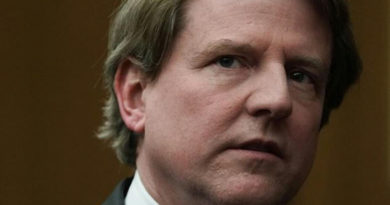BUSINESS | Asian markets mixed after Wall Street records
.
![]()

HONG KONG (AFP) – Asian markets diverged yesterday after fresh records on Wall Street and remarks by the Federal Reserve (Fed) chief that hinted the United States (US) central bank would cut interest rates later this year, without offering a clear timeframe.
While Europe’s main stock markets were dragged down on Tuesday by political uncertainty in France, the S&P 500 and Nasdaq in the US edged to all-time highs.
The records came after Fed Chair Jerome Powell pointed to “modest” progress in the battle to bring down inflation.
Although his Senate testimony did not indicate when cuts may come, analysts are predicting the first in September and a second before year’s end.
“Fed Chair Powell’s testimony overnight was pervaded with a somewhat dovish tone, mentioning that the Fed was confronted with ‘two-sided risks’,” Alvin Tan of RBC Capital Markets said in a note.
“He suggested that the Fed’s reaction function is shifting to an easing bias given the ‘significantly’ cooling labour market, but he nonetheless declined to offer a clear timeline on rate cuts.”
“In any event, the market has been pricing in almost two full Fed rate cuts this year, and Powell’s statements didn’t shift those expectations much,” Tan added.
Powell is set to testify before a House committee and investors will also be eyeing US consumer inflation data due today for further insight that price rises are still easing as hoped.
“The CPI data could be crucial in determining whether the probability of a September rate cut increases further from the current 70 per cent,” said SPI Asset Management’s Stephen Innes.
In Asia yesterday, Hong Kong stocks fell after rising above one per cent in morning trade.
Shanghai closed lower, and Sydney, Mumbai and Manila were also down.
China consumer prices edged up 0.2 per cent on-year in June, official data showed yesterday, but fell short of analyst expectations and were down from May’s 0.3 per cent increase.
While the world’s second-largest economy emerged from a period of deflation in February, prices have grown at a modest rate, in contrast to other major economies which have seen prices soar.
Zhiwei Zhang of Pinpoint Asset Management said with weak domestic demand and fiscal spending, and a high real interest rate, the risk of deflation in China has not disappeared.
“China relies on exports to be a key driver for growth in the first half of this year. In the long term China will need a rebound of domestic demand to drive the economy,” he said.
If the Fed does cut rates in September, he added, China’s central bank could follow suit.
Seoul was flat, while Wellington, Bangkok, Singapore, Jakarta and Kuala Lumpur all rose.
London, Frankfurt and Paris all opened higher.

@[email protected]


 Memento Maxima Digital Marketing
Memento Maxima Digital Marketing






